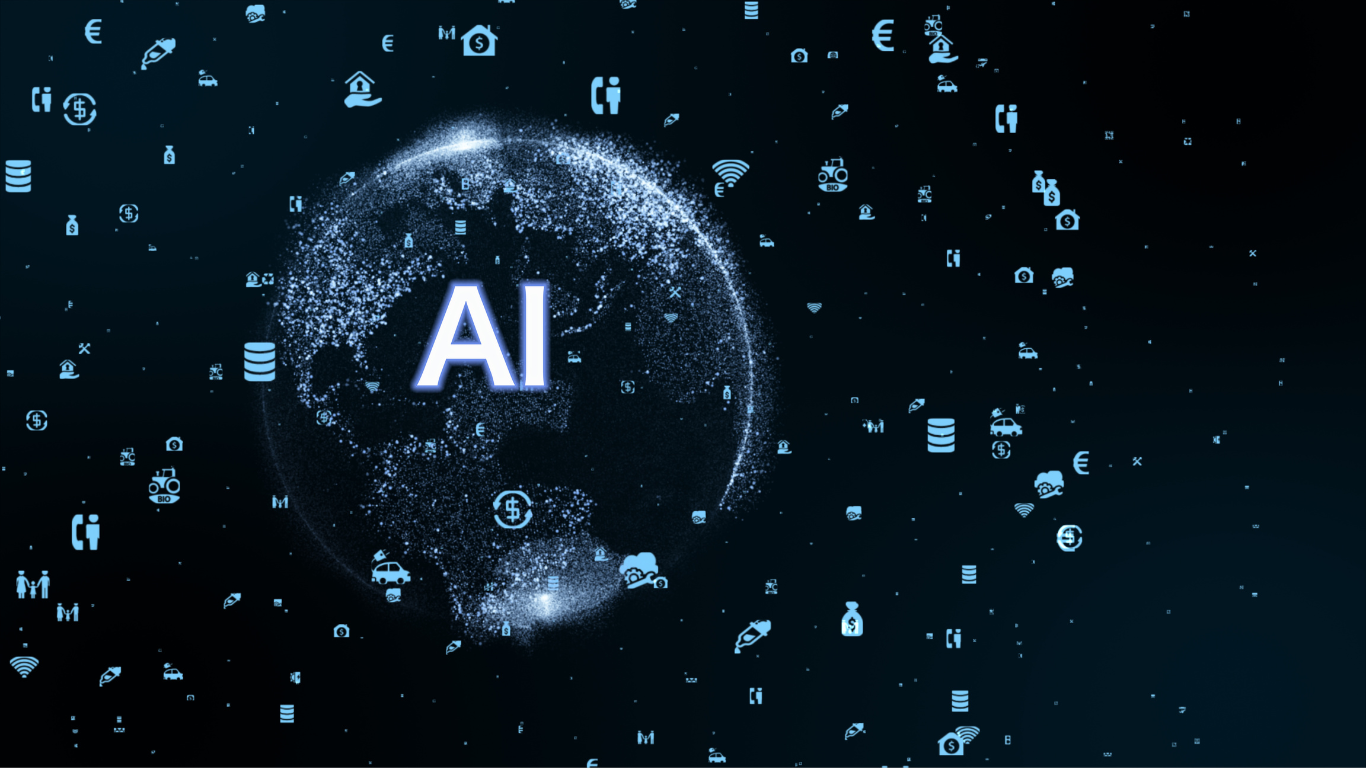The recruitment industry stands at an inflection point. The statistics are staggering: by the end of 2025, 50% of large enterprises are predicted to adopt Agentic AI in at least one core HR function—a surge from just 5% in 2022. This represents one of the fastest technology adoptions in modern business history, with growth rates that eclipse even the early days of cloud computing.
Currently, 45% of Fortune 500 companies are actively piloting Agentic AI initiatives in 2025, signaling that this isn't experimental technology but a strategic imperative. These industry leaders recognize that agentic AI represents more than incremental improvement—it's a fundamental reimagining of how talent acquisition operates at scale.
Recent data shows that 62% of candidates actually believe AI makes the candidate experience more human, not less. This counterintuitive finding reflects a deeper truth about modern candidate expectations. Today's job seekers prioritize:
- Immediate responsiveness over delayed human interaction
- Consistent communication over sporadic personal touch points
- Transparent processes over opaque decision-making
- Personalized engagement based on their specific interests and qualifications
Agentic AI systems excel in each of these areas, creating experiences that feel more attentive and responsive than traditional human-only processes.
The Business Impact of Enhanced Candidate Experience
The correlation between AI implementation and improved candidate experience is equally compelling. 66% of companies report that leveraging AI directly contributes to better candidate experience outcomes. More importantly, the business metrics associated with positive candidate experience demonstrate clear ROI:
- Net Promoter Score (NPS) Improvement: Employers with positive candidate experience are twice as likely to improve their NPS, creating measurable brand value
- Employee Retention Enhancement: These organizations are three times more likely to improve employee retention rates
- Overall Retention Gains: Companies see double the likelihood of increasing employee retention across all departments
These statistics reveal that candidate experience improvements create compounding effects throughout the entire employee lifecycle, from initial application through long-term retention.
The Technical Evolution: Understanding Agentic AI's Unique Architecture
Traditional AI tools in recruitment have operated as sophisticated but limited assistants—requiring constant human oversight and intervention. Agentic AI represents a fundamental architectural shift toward autonomous, intelligent systems capable of independent decision-making and workflow management.
Multimodal Capabilities and Autonomous Operations
When agentic AI combines with multimodal systems, the resulting capabilities transform entire hiring workflows. These systems can:
Process Diverse Data Types Simultaneously:
- Parse and analyze traditional text resumes with advanced semantic understanding
- Evaluate video interview responses for both content and behavioral indicators
- Assess audio communications for engagement levels and communication style
- Integrate social media profiles and portfolio data for comprehensive candidate profiles
Execute Complex Workflows Independently:
- Manage multi-stakeholder interview scheduling across different time zones and availability constraints
- Conduct initial candidate screenings with adaptive questioning based on role requirements
- Generate personalized follow-up communications tailored to individual candidate preferences and interaction history
- Make real-time hiring recommendations based on comprehensive data analysis
Scale Operations Without Linear Resource Increases:
- Handle volume spikes during peak hiring seasons without additional human resources
- Maintain consistent quality standards regardless of application volume
- Provide 24/7 candidate support across global operations
- Optimize processes continuously through machine learning feedback loops
Comprehensive Implementation Framework
Phase 1: Strategic Foundation and Assessment (Months 1-3)
Deep-Dive Workflow Analysis
Before implementing any agentic AI solution, organizations must conduct exhaustive analysis of their current candidate experience ecosystem. This assessment should map every touchpoint in the candidate journey:
Pre-Application Phase:
- How candidates discover opportunities (job boards, social media, referrals)
- Initial brand interactions and information gathering processes
- Barriers to application completion and drop-off points
Application and Screening Phase:
- Application completion rates and abandonment triggers
- Time between application submission and initial response
- Screening criteria consistency and bias indicators
- Communication frequency and quality during evaluation
Interview and Selection Phase:
- Scheduling complexity and coordination challenges
- Interview preparation and candidate guidance processes
- Decision-making timelines and communication protocols
- Feedback quality and delivery mechanisms
Post-Decision Phase:
- Offer negotiation and acceptance processes
- Onboarding preparation and candidate preparation
- Rejection communication and candidate relationship maintenance
Identifying High-Impact Pain Points
Focus initial agentic AI implementation on areas where autonomous systems can deliver immediate, measurable improvements:
Sourcing Optimization:
- Passive candidate identification and engagement across multiple platforms
- Predictive analytics for candidate interest and availability
- Automated relationship building with potential future candidates
- Market intelligence gathering for competitive positioning
Screening Enhancement:
- Intelligent resume parsing with contextual understanding beyond keyword matching
- Adaptive assessment delivery based on role complexity and candidate background
- Bias detection and mitigation throughout the screening process
- Predictive modeling for candidate success likelihood
Communication Streamlining:
- Real-time response to candidate inquiries across all channels
- Personalized update delivery based on candidate preferences
- Proactive communication during waiting periods
- Relationship maintenance with candidates not selected for immediate roles
Phase 2: Technology Selection and Architecture Design (Months 2-4)
Advanced AI Agent Capabilities Assessment
Modern agentic AI platforms vary significantly in their autonomous capabilities. Evaluation criteria should include:
Core Autonomous Functions:
- Natural Language Processing Depth: Beyond basic chatbot functionality to genuine conversation management with context retention across multiple interactions
- Decision-Making Autonomy: Ability to make complex scheduling, screening, and communication decisions without human intervention
- Learning and Adaptation: Continuous improvement capabilities based on outcomes and feedback
- Integration Complexity: Seamless connection with existing ATS, HRIS, and communication platforms
Advanced Technical Requirements:
- Real-Time Processing: Instant response capabilities across all communication channels
- Multimodal Analysis: Simultaneous processing of text, video, audio, and structured data
- Scalability Architecture: Cloud-native design capable of handling enterprise-level volume fluctuations
- Security and Compliance: Built-in data protection, audit trails, and regulatory compliance features
Collaborative Agent Ecosystem Design
The most sophisticated implementations utilize multiple specialized AI agents working in coordinated workflows:
Sourcing and Attraction Agents:
- Monitor job boards, social networks, and professional platforms for potential candidates
- Engage in initial outreach with personalized messaging based on candidate profiles
- Maintain talent pipeline databases with engagement history and interest indicators
- Coordinate with marketing teams for employer branding initiatives
Screening and Assessment Agents:
- Conduct comprehensive candidate evaluations using multiple assessment methodologies
- Adapt questioning strategies based on role requirements and candidate responses
- Generate detailed candidate profiles with strengths, development areas, and cultural fit indicators
- Provide hiring managers with actionable insights and recommendations
Coordination and Scheduling Agents:
- Manage complex multi-stakeholder scheduling across different time zones and preferences
- Handle rescheduling requests and availability changes dynamically
- Coordinate interview preparation materials and logistics
- Manage follow-up scheduling for additional interview rounds
Communication and Relationship Agents:
- Maintain ongoing dialogue with candidates throughout the hiring process
- Provide personalized updates and feedback based on individual candidate preferences
- Handle frequently asked questions with context-aware responses
- Nurture relationships with candidates not selected for immediate opportunities
Phase 3: Governance and Compliance Framework (Months 3-5)
Comprehensive Compliance Architecture
Agentic AI implementation in recruitment requires robust governance frameworks addressing multiple regulatory and ethical considerations:
Data Privacy and Protection:
- GDPR Compliance: Explicit consent mechanisms for data collection, processing, and retention
- Right to Explanation: Transparent AI decision-making processes with clear reasoning
- Data Portability: Candidate ability to access and transfer their data across systems
- Deletion Rights: Automated data purging based on retention policies and candidate requests
Bias Detection and Mitigation:
- Algorithmic Auditing: Regular assessment of AI decision-making patterns for discriminatory outcomes
- Diverse Training Data: Ensuring AI models are trained on representative datasets across all protected categories
- Continuous Monitoring: Real-time bias detection during live operations with automatic flagging
- Corrective Mechanisms: Automated adjustments when bias indicators exceed predetermined thresholds
Audit Trail and Transparency:
- Decision Documentation: Complete logging of all AI-driven decisions with supporting rationale
- Human Oversight Integration: Clear escalation protocols for complex or sensitive decisions
- Candidate Transparency: Clear communication about AI involvement in their evaluation process
- Regulatory Reporting: Automated generation of compliance reports for regulatory authorities
Phase 4: Pilot Implementation and Optimization (Months 4-6)
Controlled Deployment Strategy
Begin agentic AI implementation with carefully selected pilot programs that allow for comprehensive testing and refinement:
Single Use Case Focus: Start with one specific workflow component that offers high visibility and measurable impact. Interview scheduling represents an ideal pilot case because it:
- Involves multiple stakeholders with clear success metrics
- Demonstrates immediate time savings and efficiency gains
- Provides obvious candidate experience improvements
- Offers straightforward measurement criteria
Pilot Metrics and Success Criteria:
- Scheduling Efficiency: Reduction in time required to coordinate interviews
- Candidate Satisfaction: Survey scores regarding scheduling experience
- Recruiter Productivity: Time savings reinvested in high-value activities
- Error Reduction: Decrease in scheduling conflicts and communication mistakes
Iterative Refinement Process:
- Weekly Performance Reviews: Regular assessment of AI agent performance against established benchmarks
- Candidate Feedback Integration: Direct input from pilot participants on experience quality
- Stakeholder Interviews: Detailed feedback from recruiters, hiring managers, and candidates
- Algorithmic Adjustments: Fine-tuning of AI parameters based on real-world performance data
Phase 5: Scaled Deployment and Advanced Integration (Months 6-12)
Multi-Agent Workflow Implementation
After successful pilot validation, expand to comprehensive agentic AI workflows incorporating multiple specialized agents:
Integrated Workflow Example:
- Talent Pipeline Management: Sourcing agents identify and engage potential candidates across multiple channels
- Initial Screening: Assessment agents conduct comprehensive evaluations and generate candidate profiles
- Stakeholder Coordination: Scheduling agents coordinate complex interview logistics
- Ongoing Communication: Relationship agents maintain candidate engagement throughout the process
- Decision Support: Analytics agents provide hiring managers with data-driven recommendations
- Post-Decision Follow-up: Communication agents handle offer negotiations, rejections, and relationship maintenance
Advanced Performance Optimization:
Machine Learning Enhancement:
- Continuous algorithm refinement based on hiring outcomes and candidate feedback
- Predictive modeling improvements for candidate success likelihood
- Natural language processing advancement for more nuanced candidate interactions
- Behavioral pattern recognition for enhanced candidate matching
Integration Deepening:
- Advanced ATS functionality with AI-driven candidate ranking and filtering
- HRIS integration for seamless onboarding transition
- Communication platform integration for unified candidate interaction history
- Analytics platform connection for comprehensive reporting and insights
Comprehensive Success Measurement Framework
Candidate Experience Excellence Metrics
Response Time and Accessibility:
- Initial Response Time: Average time from candidate inquiry to first AI agent response (target: under 5 minutes during business hours, under 30 minutes outside business hours)
- Query Resolution Rate: Percentage of candidate questions resolved without human intervention (target: 85%+)
- Multi-Channel Consistency: Consistent experience quality across email, chat, phone, and mobile interactions
- Accessibility Compliance: Full compliance with ADA requirements and international accessibility standards
Personalization and Engagement Quality:
- Communication Relevance Score: Candidate-rated relevance of AI-generated communications (target: 4.5/5.0)
- Personalization Effectiveness: Measurable differences in engagement based on personalized versus generic communications
- Content Adaptation: AI agent ability to adjust communication style and complexity based on candidate background and preferences
- Cultural Sensitivity: Appropriate communication adaptation for candidates from diverse cultural and linguistic backgrounds
Process Transparency and Trust:
- Decision Explanation Clarity: Candidate understanding of AI involvement and decision-making processes (measured through post-interaction surveys)
- Trust Indicators: Candidate comfort level with AI-driven processes (target: 80%+ comfort rating)
- Feedback Integration: Visible improvements to candidate experience based on their feedback and suggestions
- Complaint Resolution: Speed and effectiveness of addressing candidate concerns about AI interactions
Operational Efficiency and Productivity Metrics
Workflow Automation Success:
- Manual Task Reduction: Percentage decrease in manual recruitment tasks (target: 60%+ reduction in routine activities)
- Process Standardization: Consistency in candidate treatment and evaluation across all recruiters and locations
- Error Rate Minimization: Reduction in scheduling conflicts, communication errors, and data entry mistakes
- Scalability Demonstration: Ability to handle volume increases without proportional resource increases
Quality and Speed Improvements:
- Time-to-First-Interview: Reduction in time from application to initial interview (target: 50% improvement)
- Time-to-Hire: Overall reduction in hiring cycle length while maintaining quality standards
- Candidate Quality Scores: Improvement in hiring manager satisfaction with candidate quality
- Offer Acceptance Rates: Increase in candidates accepting job offers (indicator of positive candidate experience)
Resource Optimization:
- Recruiter Productivity: Increase in high-value activities (relationship building, strategic planning) versus administrative tasks
- Cost Per Hire: Reduction in overall recruitment costs while maintaining or improving quality
- Technology ROI: Clear financial return on agentic AI investment within 12-18 months
- Scalability Economics: Decreasing marginal cost per additional hire as volume increases
Strategic Business Impact Metrics
Brand and Reputation Enhancement:
- Employer Brand Strength: Improvement in employer review scores on platforms like Glassdoor and Indeed
- Candidate Net Promoter Score: Likelihood of candidates recommending the organization to others (target: 70%+ NPS)
- Social Media Sentiment: Positive mentions and discussions about the organization's hiring process
- Industry Recognition: Awards and recognition for innovative recruitment practices and candidate experience
Long-Term Organizational Benefits:
- Employee Retention Correlation: Improved retention rates among employees hired through AI-enhanced processes
- Performance Indicators: Higher performance ratings for employees recruited using agentic AI systems
- Diversity and Inclusion Metrics: Improvement in diverse hiring outcomes through bias-reduced AI processes
- Competitive Advantage: Ability to attract candidates who choose the organization partly due to innovative hiring experience
Advanced Integration Strategies and Future-Proofing
Emerging Technology Integration
Conversational AI Evolution: As natural language processing continues advancing, agentic AI systems will become increasingly sophisticated in their candidate interactions. Prepare for:
- Voice-First Interactions: Candidates conducting entire screening interviews through voice AI systems
- Emotional Intelligence Integration: AI agents capable of recognizing and responding to candidate emotional states
- Multilingual Capability: Seamless communication in multiple languages without human translator involvement
- Cultural Context Awareness: AI understanding of cultural nuances in communication and evaluation
Predictive Analytics Advancement: Future agentic AI implementations will leverage increasingly sophisticated predictive capabilities:
- Success Probability Modeling: Accurate predictions of candidate success likelihood based on comprehensive data analysis
- Retention Forecasting: AI-driven insights into long-term employee retention probability
- Career Path Optimization: Matching candidates not just to current roles but to long-term career trajectories within the organization
- Market Trend Anticipation: AI agents adjusting recruitment strategies based on predicted labor market changes
Organizational Change Management
Stakeholder Adoption Strategies:
Recruiter Empowerment: Position agentic AI as career enhancement rather than replacement:
- Skill Development Programs: Training recruiters in AI collaboration and strategic candidate relationship management
- Role Evolution Planning: Clear career paths that leverage AI collaboration for higher-value activities
- Success Story Sharing: Regular communication about productivity gains and professional development opportunities
- Feedback Integration: Recruiter input driving AI system improvements and customization
Hiring Manager Integration: Ensure hiring managers understand and trust AI-driven recommendations:
- Decision Support Training: Education on interpreting and utilizing AI-generated candidate insights
- Collaboration Protocols: Clear guidelines for when and how to override AI recommendations
- Success Metrics: Demonstrating improved hiring outcomes through AI-human collaboration
- Customization Options: Ability to adjust AI parameters based on specific role requirements and team dynamics
Candidate Communication Strategy: Proactive communication about AI involvement builds trust and comfort:
- Transparency Initiatives: Clear explanation of AI roles in recruitment processes
- Benefit Highlighting: Communicating how AI improves candidate experience rather than just organizational efficiency
- Feedback Mechanisms: Multiple channels for candidates to provide input on AI interactions
- Human Option Availability: Always providing paths to human interaction when candidates prefer personal touch
Risk Management and Contingency Planning
Technical Risk Mitigation
System Reliability and Backup Protocols:
- Redundancy Planning: Multiple AI systems and human backup procedures for critical functions
- Performance Monitoring: Real-time system health monitoring with automatic alerting
- Gradual Degradation: Systems designed to operate at reduced capacity rather than complete failure
- Recovery Procedures: Rapid restoration protocols minimizing candidate experience disruption
Data Security and Privacy Protection:
- Encryption Standards: End-to-end encryption for all candidate data transmission and storage
- Access Controls: Granular permissions ensuring only authorized systems and personnel access candidate information
- Breach Response: Comprehensive incident response plans for potential data security issues
- Regular Security Audits: Continuous assessment of security posture and vulnerability management
Regulatory and Compliance Risk Management
Legal Framework Evolution: Stay ahead of changing regulatory landscapes:
- Regulatory Monitoring: Continuous tracking of AI-related legislation and recruitment regulations
- Compliance Adaptation: Agile adjustment of AI systems to meet new legal requirements
- Industry Collaboration: Participation in industry groups developing AI ethics and best practices
- Legal Expertise Integration: Regular consultation with employment law experts specializing in AI applications
Ethical AI Governance:
- Ethics Review Boards: Cross-functional teams evaluating AI decision-making for ethical implications
- Bias Auditing: Regular assessment of AI outcomes for discriminatory patterns
- Candidate Rights Protection: Robust mechanisms ensuring candidate privacy and fair treatment
- Transparency Maintenance: Ongoing commitment to clear communication about AI involvement and decision-making
The Strategic Future of Agentic AI in Recruitment
The recruitment industry's transformation through agentic AI represents more than technological upgrade—it's a fundamental reimagining of how organizations identify, evaluate, and attract talent. As adoption accelerates from 5% to 50% of large enterprises in just three years, the competitive landscape will increasingly favor organizations that master AI-human collaboration.
Competitive Differentiation Through AI Excellence: Organizations implementing agentic AI effectively will gain sustained competitive advantages:
- Talent Magnet Effect: Superior candidate experiences creating positive word-of-mouth and increased application rates
- Speed to Market: Faster hiring cycles enabling quicker response to business opportunities and market changes
- Quality Optimization: More accurate candidate matching leading to improved employee performance and retention
- Cost Leadership: Significant recruitment cost reductions while maintaining or improving hiring quality
Market Evolution and Adaptation: As agentic AI becomes standard practice, the definition of competitive recruitment will evolve:
- Baseline Expectations: Candidates will expect AI-enhanced experiences as standard, not premium
- Innovation Pressure: Continuous improvement in AI capabilities will become necessary for talent attraction
- Specialization Opportunities: Organizations may differentiate through specialized AI applications for specific industries or roles
- Partnership Ecosystems: Collaboration between AI vendors, recruitment firms, and employers will create new value propositions
Transforming Recruitment Through Intelligent Automation
The implementation of agentic AI in candidate experience workflows represents one of the most significant opportunities for competitive differentiation in modern talent acquisition. The statistics are compelling: 62% of candidates find AI makes their experience more human, 66% of companies report improved candidate experience through AI implementation, and organizations with positive candidate experience see 2-3x improvements in retention and NPS.
However, success requires more than technology deployment. It demands strategic thinking, comprehensive planning, robust governance, and unwavering commitment to candidate-centric design. The organizations that approach agentic AI implementation with proper preparation, realistic expectations, and continuous improvement mindsets will find themselves at the forefront of recruitment innovation.
The transformation is already underway. With 45% of Fortune 500 companies piloting agentic AI and adoption rates accelerating rapidly, the question isn't whether to implement these systems—it's how quickly and effectively you can master them to create exceptional candidate experiences that drive business results.
The future of recruitment is autonomous, intelligent, and paradoxically more human than ever before. Organizations that embrace this reality and implement agentic AI thoughtfully will discover that the technology doesn't replace human connection—it amplifies it, creating space for recruiters to focus on what they do best: building relationships, understanding needs, and connecting great people with great opportunities.
The journey toward agentic AI mastery begins with a single step: identifying your first use case and taking action. In a rapidly evolving market, the greatest risk isn't implementing AI imperfectly—it's waiting for perfect conditions that will never come.
Ready to transform your candidate experience with agentic AI? Start with a comprehensive workflow audit, identify your highest-impact pain points, and begin your pilot implementation. The future of recruitment is autonomous, and it's arriving faster than you think.







